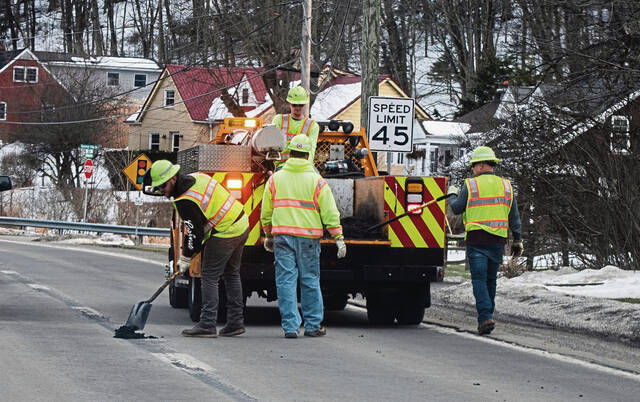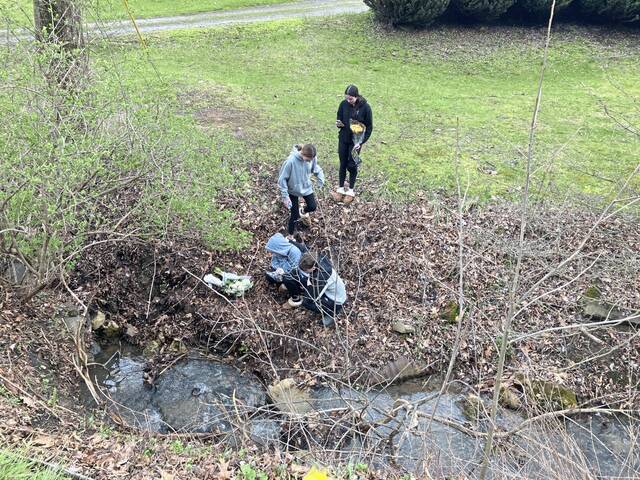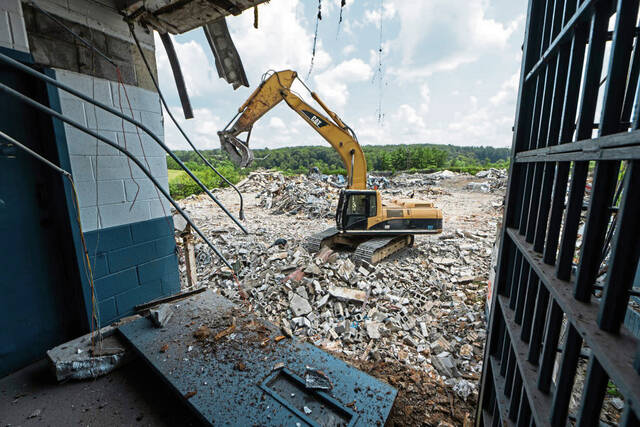Greensburg Public Works Director Tom Bell took a good bit of verbal abuse this week about a road he’s not even responsible for maintaining.
“Next time, leave your phone number, and I can explain to you why and who maintains that roadway and takes care of those potholes,” Bell wrote in a post on the department’s Facebook page.
The road in question was Route 66 between Locust Valley Road and Cabin Hill Drive, which this week — before state road crews were able to start patching them — became home to a nasty series of potholes, many lined up one right after another in straight lines.
Both state and local road maintenance crews switch from plowing and salting roads to place cold-patch asphalt in the holes that opened up during the deep-freeze and thaw in temperatures.
Officially, Route 66 is a state-maintained road and PennDOT road crews are responsible for patching it.
But that’s not to say Bell’s staff doesn’t get involved.
“(Monday) on Pittsburgh Street, which is a state road, we patched a huge pothole that people were actually swerving to avoid,” Bell said. “We filled it because we don’t want any accidents happening in the city.
“We also helped out on Arch Avenue a little bit. I get that, with all the miles of road they have, PennDOT can’t be out patching 24 hours a day.”
PennDOT spokesperson Laina Aquiline said that stretch of Route 66 was last milled and paved more than a decade ago, in 2014.
The linear nature of the potholes is likely an indication that water infiltrated the pavement near a joint or surface crack, Aquiline said.
“The melting snow, followed by the extreme cold was and is a perfect scenario to produce potholes,” she said. “We’re seeing them on a lot of our roadways and are continuously patching as we identify and have the resources to repair them.”
She said PennDOT annually spends more than $1.8 million and uses an average of 1,900 tons of asphalt to repair potholes in its District 12 service area: Fayette, Greene, Washington and Westmoreland counties.
During the winter, PennDOT crews make temporary repairs to roads using cold patch material — an asphalt mix containing soap, water and fine stones. The soap and water keep the material flexible, making it easier to work with, while hardening occurs as they evaporate.
In the spring, warm mix asphalt — a blend of pure asphalt and fine stone heated to 250-265 degrees — becomes available for more permanent repairs.
Bell said this winter has kept his patching crews busy.
“We’ve probably used about five tons of cold patch material so far,” he said. “People call our office and give me the third degree about roads we don’t maintain.
“But we do as much as we can, and we try to help PennDOT out as part of a friendly working relationship.”
Motorists can report potholes on state-owned roads by calling 1-800-349-7623. They should include as much detail as possible: county, municipality, route number or street name and nearby landmarks.








